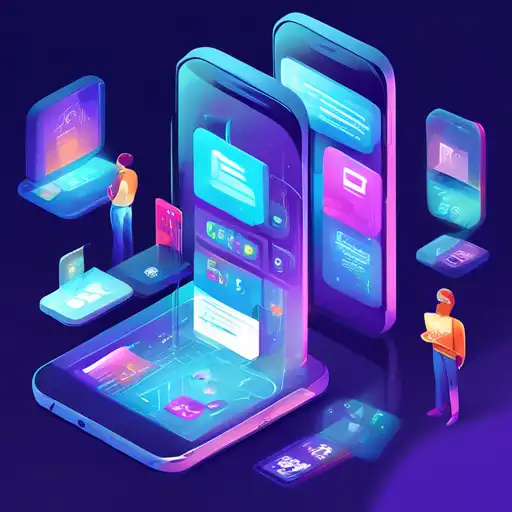Introduction to Mobile Development Trends
The mobile development landscape is continuously evolving, with new technologies and methodologies emerging at a rapid pace. As we look towards the future, several key trends are poised to redefine how apps are developed, deployed, and experienced by users worldwide. This article explores these pivotal trends, offering insights into what developers, businesses, and consumers can expect in the coming years.
1. The Rise of 5G Technology
5G technology is set to revolutionize mobile development by enabling faster data speeds, lower latency, and more reliable connections. This advancement will not only enhance the performance of mobile apps but also unlock new possibilities for immersive technologies such as augmented reality (AR) and virtual reality (VR). Developers are encouraged to start experimenting with 5G capabilities to stay ahead of the curve.
2. Artificial Intelligence and Machine Learning Integration
Artificial Intelligence (AI) and Machine Learning (ML) are becoming increasingly integral to mobile apps, offering personalized user experiences, improved security, and smarter functionalities. From chatbots to predictive analytics, the integration of AI and ML is a trend that's here to stay. For more on AI in mobile apps, check out our detailed guide.
3. The Growth of Cross-Platform Development Tools
Cross-platform development tools like Flutter and React Native are gaining popularity, allowing developers to write code once and deploy it across multiple platforms. This approach not only saves time and resources but also ensures a consistent user experience across devices. As these tools continue to evolve, we can expect even greater efficiency and performance.
4. Enhanced Focus on App Security
With the increasing amount of sensitive data being processed by mobile apps, security has never been more critical. Future mobile development will place a stronger emphasis on implementing robust security measures, including advanced encryption techniques and biometric authentication, to protect user data.
5. The Expansion of IoT and Mobile Integration
The Internet of Things (IoT) is expanding its reach, with more devices connecting to the internet and to each other. Mobile apps will play a crucial role in controlling and monitoring these devices, leading to more integrated and convenient user experiences. Developers should consider how their apps can interact with IoT devices to offer added value.
Conclusion
The future of mobile development is bright, with numerous innovations on the horizon that promise to enhance app functionality, security, and user engagement. By staying informed about these trends and adapting to new technologies, developers can ensure their apps remain competitive and relevant in a rapidly changing digital landscape. For further reading on mobile development strategies, visit our resource page.
